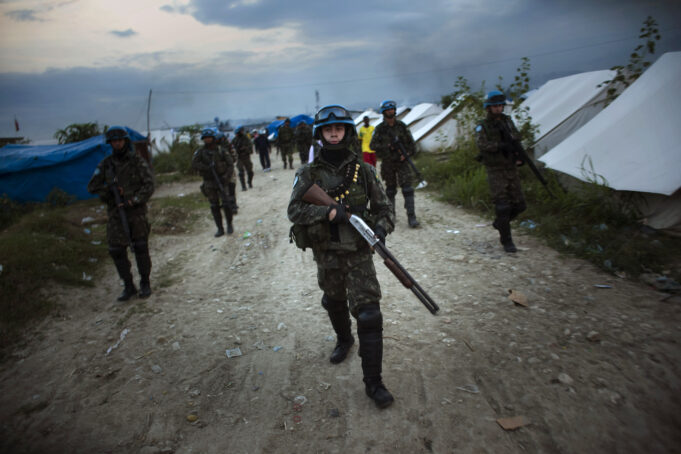Truth and justice advocates and anti-imperialist organizations, along with concerned Haitians, vehemently rejected a United Nations Security Council vote renewing the presence of a controversial peacekeeping force in Haiti. The Security Council unanimously adopted a resolution to extend the mandate of the United Nations Integrated Office in Haiti (BINUH) for another year. The resolution was adopted July 15.
According to the Integrated Office website, it was established in 2017 as a peacekeeping mission to support Haiti’s government, strengthen rule-of-law institutions, develop its national police, and engage in human rights monitoring, reporting and analysis. But critics accuse the UN Integrated Office in Haiti, along with Washington and other foreign cohorts under the umbrella of what is known as The Core Group, of being agents of destabilization, not of peace and development.
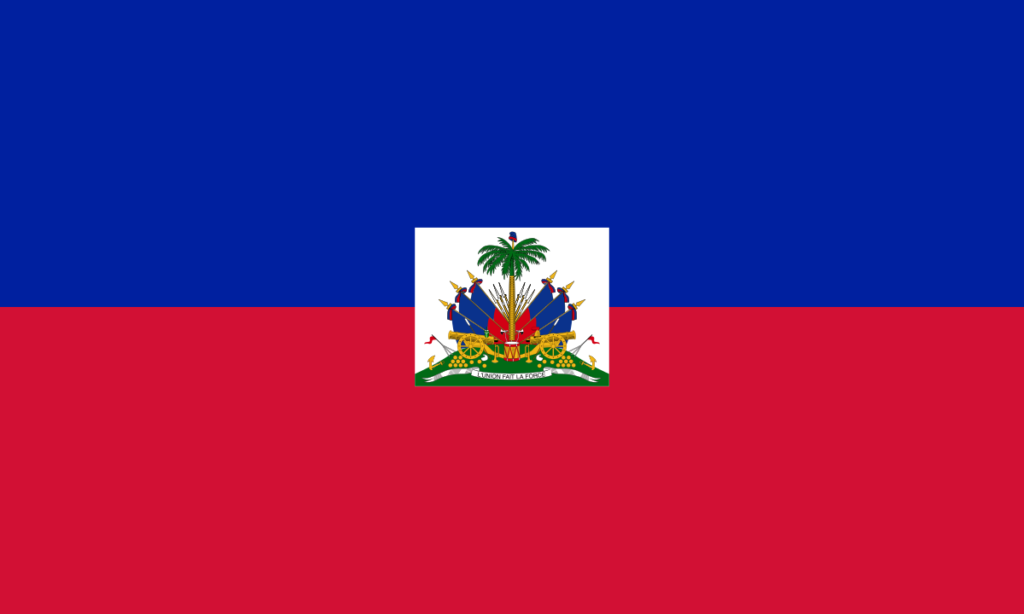
“The notion that they would extend their presence in Haiti for another year in order to address the gang violence that is affecting mainly the poorest of the poor in Haiti is laughable,” said Joseph Makhandal, a lawyer and Nation of Islam representative to Haiti.
It is a testimony to the failure of the UN itself, that despite its years of being underground to essentially replace law enforcement and yet the situation in Haiti has become even more precarious and violent.
“The current condition of Haiti speaks to the lie that the UN is there for peacekeeping purposes,” said Student Minister Makhandal. He pointed out that it’s interesting that whenever their contract is about to end, new waves of crisis erupt, justifying extending their mandate to stay on Haitian soil.
“We see the UN force as an occupation force in Haiti. So do most Haitians. In fact, there’s been constant protests against the UN,” said Jemima Pierre, co-coordinator of the Haiti-Americas Team for the Black Alliance for Peace. She explained it’s a misnomer, the UN is a benevolent institution and said the UN Security Council itself is run by Europeans and is undemocratic.
“When we say the UN is sending an occupation force, we’re talking about the White West running the rest of the world, under the cover of the UN,” said Ms. Pierre.
Diplomats argued the increasing “gang violence” and ongoing political instability that has plagued the Caribbean nation of 11.4 million people necessitates the renewal of the UN mandate.
Haiti has been spinning in an economic and social free fall, which advocates argue is by design from decades of foreign interference, primarily by the U.S., the UN, and a minority of Haitian elites.
Basic economic indicators, nutrition, access to sanitation, clean drinking water and health care deteriorated under 18 years of the UN occupation. “And so, either the UN is incompetent, or the actual real nature of the occupation has been to perpetuate this anti-democratic order in the service of imperialism,” said Seth Donnelly, author of “The Lie of Global Prosperity.”
“And that is clearly what’s going on,” he added.
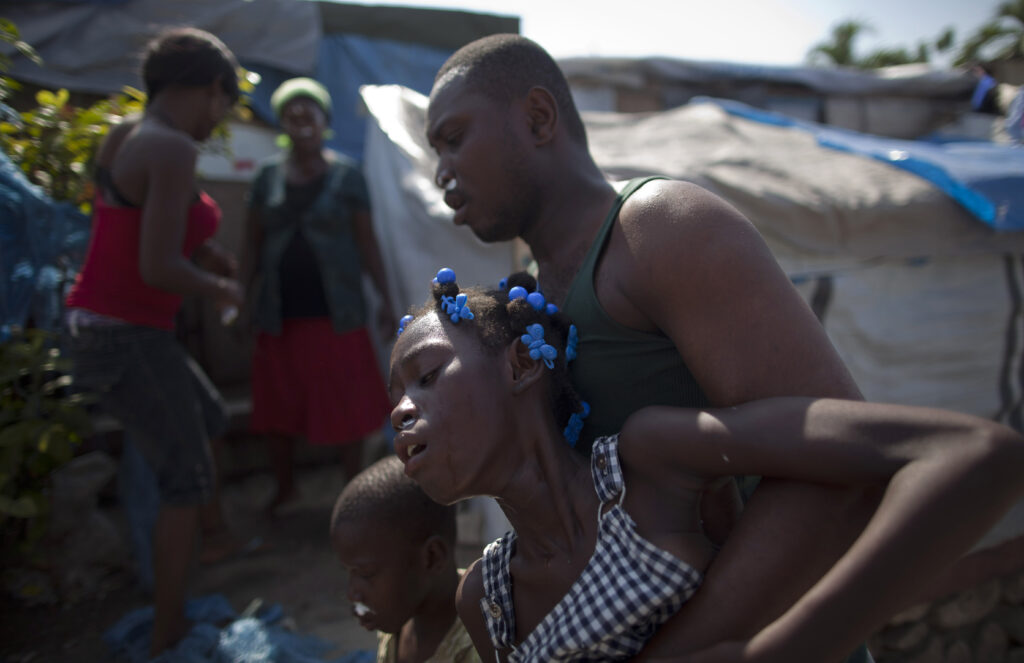
Opponents who rejected extended renewal mandate argued that United Nations Integrated Office in Haiti is only a smaller remix of the former UN Stabilization Mission in Haiti (MINUSTAH) established after the 2004 overthrow of President Jean-Bertrand Aristide. Until its demobilization in 2017, UN mission was viewed as an occupier force, widely blamed for the wave of instability engulfing Haiti today. Haiti is considered ungovernable and under the cloud of distrust; Haitians are weary of the UN.
The mandate extension is always contentious because UN Integrated Office in Haiti holds an outsized role in Haitian politics. Haitians were hoping against the extension because the last 18 years of the UN presence, a president was assassinated, violence grew, and illicit arms entered the country and given to young Haitians.
It has been a year since the unsolved assassination of Haiti’s President Jovenel Moïse and the country has a weak to non-existent government. Attempts to form a coalition government have failed. Mass movements in Haiti consisting of opposition forces and civil society groups are virtually united around calling for a credible transition government that is capable of organizing fair and free elections.
However, the Biden administration and the UN is isolated in betting that the current Haitian regime—which is really their creation—is capable of organizing elections.
Many Haitians have tried to flee the country as mayhem in the streets by so-called gangs have grown worse. Some allege the gangs are backed by the regime and its foreign supporters.
At presstime, an upsurge in fighting between rival gangs in the Cité Soleil community in Haiti’s capital, Port-Au-Prince, led to the deaths of 99 people with 135 injured, according to data reported by the UN humanitarian affairs coordination office in Haiti.
Beyond media narratives characterizing Haiti as a bastion of dysfunction, violence and bloodshed, observers contend foreign influences are partly responsible for the conditions.
“The gangs, of course, aren’t there in a vacuum,” said Brian Concannon, executive director of the Institute for Justice and Democracy in Haiti. These groups often fill a void of basic services in the absence of a functioning government in areas they control.
“In some of that inability to provide government services, Haitians should be blamed, but also the long-term economic exploitation of Haiti by the powerful countries is a big part of that,” said Mr. Concannon.
A major factor to be considered, he asserted, is the Haitian government alleged support of gangs. “And the government is there in part, because the United States is supporting the government,” he said.
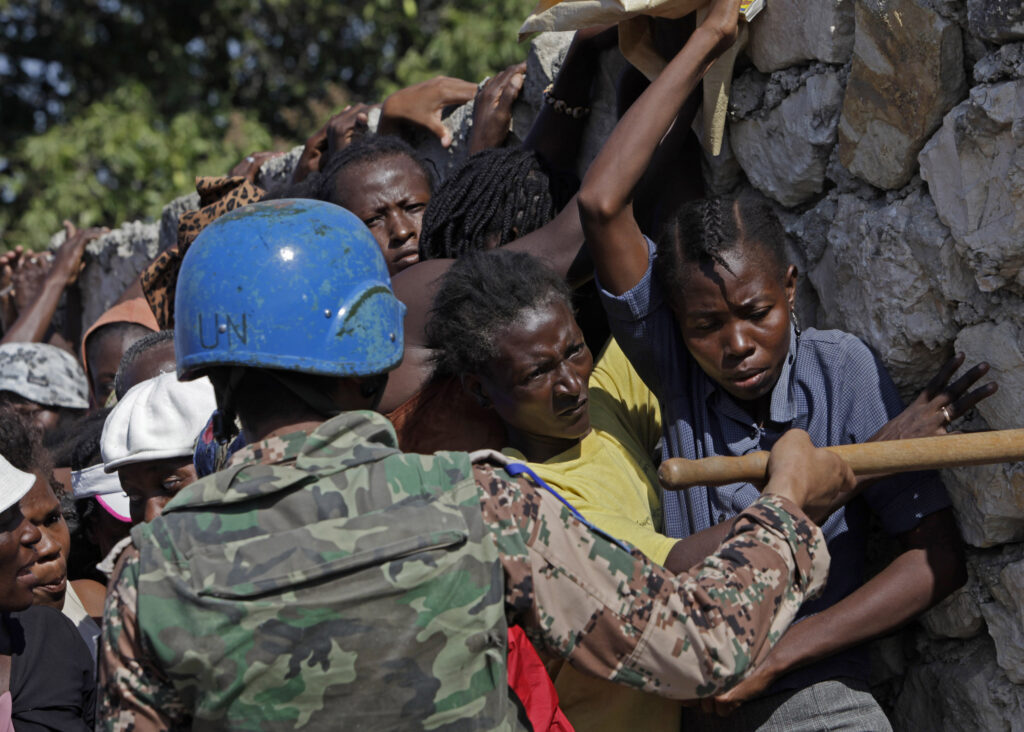
“Addressing these issues, we understand that the problem plaguing Haiti is not ‘of’ Haitians, but imposed ‘on’ Haitians, and ‘adopted’ by Haitians,” said Student Minister Makhandal.
The crisis did not originate with Haitians, and the solution cannot come from those who created the problem. “The solution will have to come from us, the men and women in America and in Haiti,” he said.
He added that in the Teachings of the Most Honorable Elijah Muhammad is the “balm, not just in Gilead” but in Haiti. Mr. Makhandal repeated words the Honorable Minister Louis Farrakhan of the Nation of Islam said to him about Haiti: “The Haitian people do not need another religion, the Haitian people need freedom, justice and equality, true love, and unity.”
Haiti is a victim of America whose power has been like a serpent whose tail has spread throughout the ends of the Earth.
Haiti has a legacy of liberation struggles against White world supremacy, domination and colonialism. Its chaos comes amid a time of trouble and decline of America, a nemesis of freedom and justice. America has been a trouble source for its hemispheric neighbors.
Min. Farrakhan said, the American people know very little about America’s foreign policy.
“All over the Earth, wherever I have traveled, wherever people dislike America: It is not ‘the American people,’ necessarily, that the people of the Earth are angry with, or burdened by, it is the foreign policy of the government of the United States,” said Minister Farrakhan, in Part 13 of a yearlong 2013 lecture series called, “The Time and What Must Be Done.”
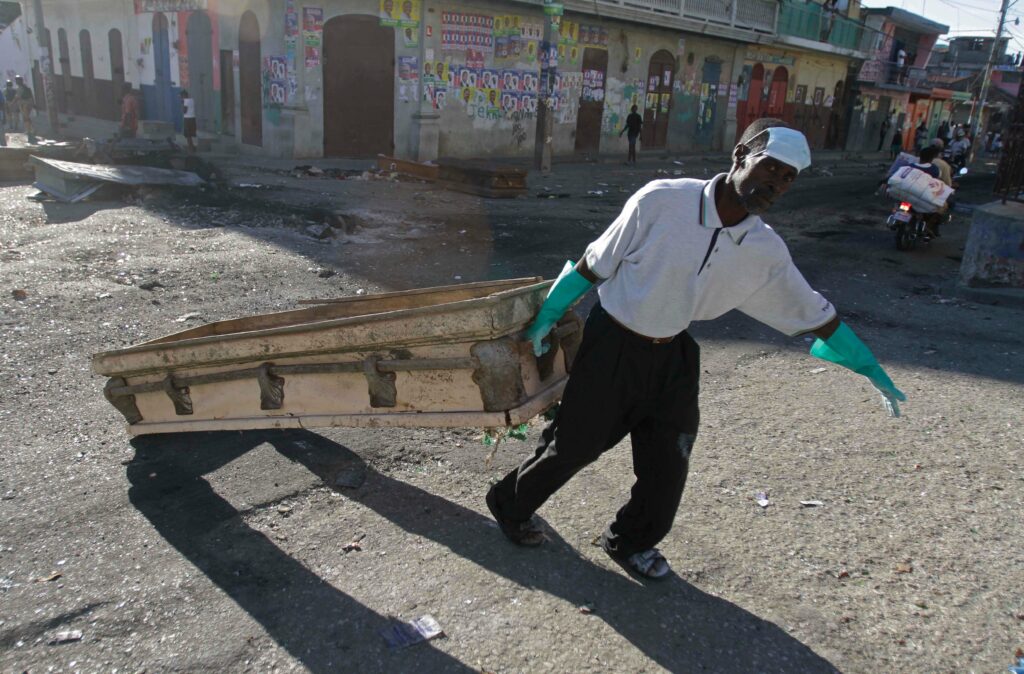
He said of the enemies America makes, that it is the government itself that makes them for the American people. He explained that America is hated because America’s view of herself is that “we are a good nation.”
“But, at ‘the top of things’ you have a Satanic, Demonic Mind that is the Architect of America’s foreign policy. And this foreign policy has objectives and national interests. But the American people don’t know, necessarily, what those ‘interests’ are, and they don’t necessarily know what the ‘foreign policy objective’ of their government is toward the nations and people of the Earth,” said Minister Farrakhan.
How you treat the ethnic groups/the racial groups within America is how you will treat those that come from other nations to be made “Americans,” he explained. “So, if our government does not have a good domestic policy toward Mexican people, how will they have a good policy toward the Mexican nation? If they don’t have a good domestic policy toward Cubans or Haitians, or Guatemalans or Hondurans or Jamaicans or Barbadians or Africans in America and in the Diaspora, how could America’s policies be good for them if they’re not good for those who live within the borders of what is called the United States of America?”
All have tasted of “the meddling of America” in the affairs of their nations, Minister Farrakhan explained.
The Muslim minister also warned from the scriptures that America and the nations of the world have entered a time of divine judgment where they will reap what they have sown.
“America’s ‘knees are bowing’ due to her corrupt domestic and foreign policies when the scriptures say, ‘on that day’ you will see every nation ‘kneeling down,’ that means in that day you’re in submission—in that day, you will be beaten in such a way by God and the forces of nature that He will use against you,” he warned.












